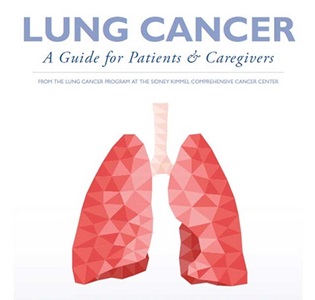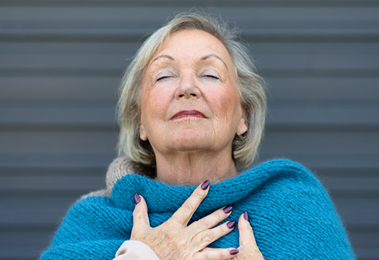5 Healthy Habits That Help You During Lung Cancer Treatment
If you’re fighting cancer, a healthy lifestyle can help you stay well during and after treatment. Research suggests that good nutrition, exercise and other healthy behaviors may improve your quality of life during treatment.

“Taking charge of your health by developing healthy habits empowers you to cope better with your treatment and any side effects you may have,” says Lonny Yarmus, D.O., a board certified interventional pulmonologist at the Lung Cancer Program at the Sidney Kimmel Comprehensive Cancer Center.
Benefits of Healthy Living During Treatment
Good nutrition, exercise and stress-relieving activities can help you deal with the effects of cancer and its treatment. In fact, some cancer treatments work better when you’re eating well, moving more and eliminating other bad habits such as smoking, Dr. Yarmus says.
Dr. Yarmus explains that a healthy lifestyle can help minimize some cancer treatment side effects, including:
- Fatigue
- Nausea
- Vomiting
- Stress
- Anxiety
- Depression
Strategies to Stay Healthy During and After Treatment
Healthy living can improve your quality of life during and after lung cancer treatment. For some people, finding out they have lung cancer motivates them to focus on their health. For others, it’s hard to commit to new, healthy habits. Lean on your support system, including your cancer care team, to help you develop a healthy lifestyle.
The top five healthy habits that can help support your wellness during and after treatment include:
- Stop smoking: Even if you’ve been diagnosed with lung cancer, there are immediate rewards when you quit smoking, including:
- Normal blood pressure and heart rate levels
- Lower risk of chronic diseases such as heart disease and high blood pressure
- Improved function of your lungs and respiratory system
- Eat well: Good nutrition is important for lung cancer patients. Eating the right kinds of foods can help you feel better, stay stronger and fight infection. If you’re unsure about how to eat healthy, we can connect you with a Johns Hopkins nutritionist who will create an eating plan that meets your unique needs.
- Be active: Physical activity can help reduce fatigue, improve mood and maintain a healthy weight. Even short bouts of activity such as gentle walking or light stretching will give you benefits.
- Enlist support: Beyond your physical health, it’s essential to address your mental health and emotional needs. You may want to talk with a counselor or other cancer patients who understand what you’re going through. Read more about support for lung cancer treatment.
- Manage your care: Whether it’s you or a caregiver who’s championing your cancer care, it’s important to have someone who is advocating for your needs. This includes communicating with your cancer care team, coordinating appointments, and keeping track of symptoms and side effects.
Download Our Lung Cancer Guide

Learn more about your lung cancer diagnosis and take charge of your care.





